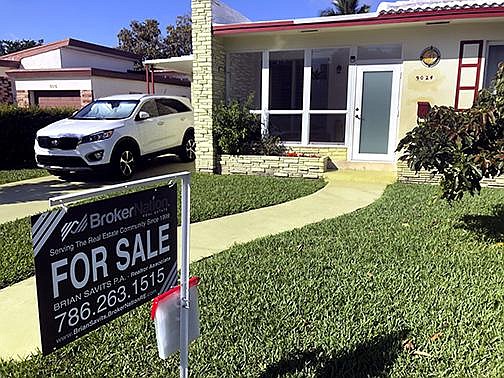This story is a part of The Article, your guide to Arkansas news and culture, presented by the Democrat-Gazette. Sign up for The Article's twice-weekly newsletter here or to see stories that have appeared in past newsletters, go here .
Buying a home is an infamously complicated, sometimes long process. To help get started, here are some first steps and tips from realtors in Central Arkansas.
Meet with a lender
Although it may be tempting to pore over listings or tour homes first, Maurice Taylor, executive broker with Coldwell Banker RPM Group, said the first step a prospective homebuyer should take is meeting with a lender.
The lender, usually a bank or credit union, will be able to help an individual or couple learn what types of mortgages exist and what house price they can afford.
[Also from Grown: How to get down payment assistance in Arkansas]
Carolyn Cobb, vice president of Coldwell Banker RPM Group, said it’s important to remember the distinction between the loan someone qualifies for and what they can afford. Someone may qualify for a large loan, but a smaller loan may make monthly payments more in-line with their budget.
“Just because they can borrow that much doesn’t mean they should,” she said.
Taylor said another consideration to factor in when deciding how much to spend on a home is the continuing cost of maintenance.
Decide what’s important and start looking
After a person or couple learns what they can afford, Taylor said it’s important to come up with a list of non-negotiables.
“There aren't any unicorn houses out there,” Taylor said. “So, what are your must haves, and then what are some deal breakers?”
Taylor said most people consider not just the number of bedrooms and bathrooms but also a house’s distance from work, what schools it is zoned for and what traffic is like in the area, among other things.
Get inspections
Carolyn Cobb said once a buyer puts in an offer and it is accepted, they sign a contract and enter into a 10-day window she called a “discovery period” during which the buyer can have the home looked over for any issues.
Though Arkansas does not require a seller to provide one, many homeowners will give buyers a seller’s disclosure acknowledging known issues with the property.
Regardless, Taylor said he still encourages buyers to hire an independent inspector to look over the property.
Important areas of focus during an inspection include the foundation, the roof and the heating and air conditioning systems.
Taylor said an inspector should also be able to tell buyers how the property will fare during heavy rains.
“Even if they're getting the type of loan where there's going to be some type of inspection, those inspections are not going to be as detailed or as thorough as the independent inspector,” he said.
In addition to an inspection, Taylor said he recommends buyers have the property surveyed. This will determine where exactly their property ends and whether anything encroaches on it, such as another home’s driveway, fence or trees.
Around this time, Cobb said the lender financing the buyer will also send an appraiser to look at the property to determine what they think it is worth.
Once these things are done, Cobb said the buyer can go back to the seller and negotiate to resolve issues and possibly change the price.
Purchase insurance policies
Once someone purchases a home, Taylor said they must decide what insurance coverage to purchase.
Hazard insurance is the typical coverage most people think of when it comes to owning a home, Taylor said. It usually covers events such as a tree falling onto the roof or a fire.
For many people, Taylor said a home warranty is also worth the money. It helps cover the cost of repairs to major appliances, such as an oven or dryer, or repairs to systems, such as heating and cooling.
A third type of coverage Taylor recommends is title insurance. This policy protects homebuyers in the event someone else tries to claim ownership of the property.
“You have all this money invested in this property and your contents,” Taylor said, “You just don't want anything to happen to it.”
